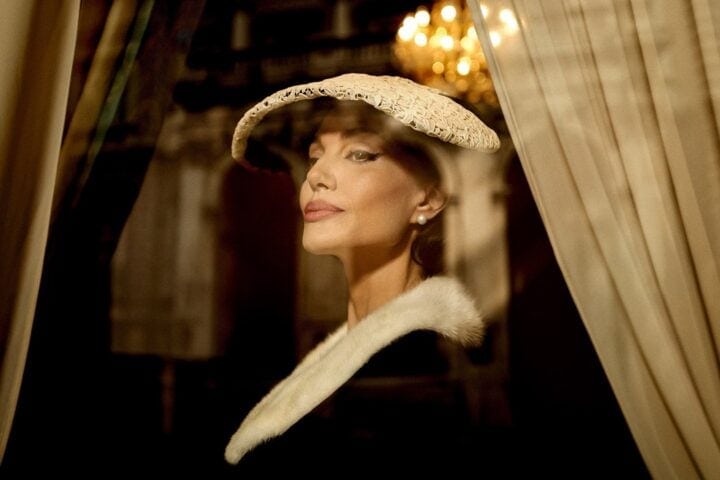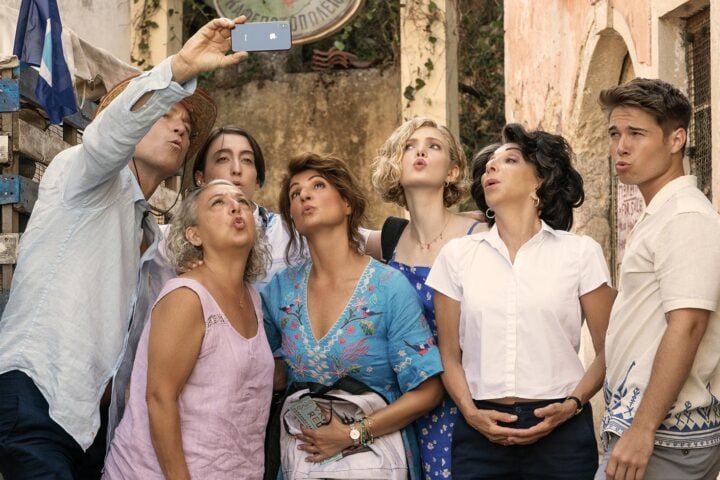Alice Rohrwacher’s La Chimera opens on Arthur (Josh O’Connor) on a train, returning from places unknown, as it winds its way through the Italian country, the sun-dappled cinematography inducing a sleepy or meditative state. This idyllic tone makes an immediate, ironic contrast with our protagonist, a British man whose disheveled appearance and miserly attitude constitute a black hole in the center of the film’s bright frames.
Like David Thewlis’s lanky emotional vampire in Naked, Arthur radiates a “don’t talk to me” vibe that initially fails to put off the friendly rural Italians in his midst. They attempt to make conversation with Arthur, who says so little that you’d scarcely know that he speaks fluent Italian, until scaring them off after he belligerently accosts an overly ingratiating peddler. Even when he arrives at his destination and is met by locals who know him and consider him a friend, he can scarcely bear to share their company on a car ride to their nearby village.
Gradually, it emerges that Arthur, a former archaeologist, knows these people as accomplices in an illegal trade of Etruscan artifacts that he helps to recover and appraise, and that he’s returning to their town after a stint in jail. If Arthur is more outwardly surly than his compatriots, they prove just as cynical as him when it comes to the subject of looting artifacts. The locals defend the unearthing and trade of those relics by noting that the Etruscans are long dead anyway, and as such the notion of theft becomes an abstract principle.
This philosophical quandary leads to other musings on the transience of civilization, as the modern-day Italians cannot fathom the Etruscan custom of burying one’s objects compared to the demonstrative displays of their own cultural achievements stretching from Renaissance art all the way back to the still-standing structures of ancient Rome. The sun-dappled images of the Italian countryside capture a millennia of history as a kind of ever-present idyll. By contrast, it’s easy for many to ignore the ethical dilemma of looting Etruscan tombs, as they’re buried beneath the earth and seemingly lost to time. Some even see the relics as gifts of inheritance.
More politically pointed are defensive comments from Arthur and others about museums and other institutions readily buying the stolen relics, a reminder of how much cultural history is preserved and made available to the public through ethically dubious means. When Arthur travels from the rural town in central Italy where Rohrwacher’s film is mostly set to a nearby city, the buyer of his looted wares isn’t some shadowy crook at the margins of polite society but a legitimate business entity with a large office floor in a corporate skyscraper. These buyers are just another example of exploitation presenting itself as capitalist enterprise.
As a film so attuned to the subtle and profound historical shifts in both culture as a general concept and within Italy specifically, La Chimera logically, perfectly incorporates visual techniques running the history of film and theater. It’s in everything from the playful moments that use sped-up motion to suggest silent-film comedy, to the fourth-wall-breaking moments when characters speak directly into the camera. But across this rueful film obsessed with all things unseen, there are also echoes of Italy’s own cinematic past.
One of the people in Arthur’s orbit is Flora, the wheelchair-using mother of the love of his life, and that she’s played by Isabella Rossellini underlines, along with the images of rural life rendered as a kind of transcendental realism, Rohrwacher’s commitment to channeling the aura of the neorealist masterworks that Roberto Rossellini make with Ingrid Bergman. But perhaps the strongest point of reference are the films that Jean-Marie Straub and Danièle Huillet made in Italy in the early 1970s—works set in the ruins of amphitheaters and forums that bore silent witness to bloodshed that once engulfed now-tranquil countryside hills and meadows.
In that sense, La Chimera is the flipside of Rohrwacher’s Happy as Lazzaro. That film played on the “ignorance is bliss” adage by following an innocent farmer whose lack of engagement with the world made him immune to time’s ravages. In La Chimera, the importance of time is seemingly felt by everyone, suggesting a great sinkhole beneath the feet of the film’s characters, who make note of the fact that even as they justify their looting as reclamation from an extinct people that one day they, too, may be looted by the civilization that takes their place.
That all brings a melancholic tinge to a largely satirical film, which ties back to Arthur’s discontent. Part of his frostiness can be attributed to his past relationship to Beniamina (Yile Vianello), Flora’s daughter. Beniamina is only glimpsed in a series of wistful flashbacks—and they’re so dreamy that one wonders if the woman was ever real. Gradually, she becomes just another ghost in this land of the dead, a sobering reminder to Arthur that even the living become little more than a faint memory of themselves in the places they once called home.
Since 2001, we've brought you uncompromising, candid takes on the world of film, music, television, video games, theater, and more. Independently owned and operated publications like Slant have been hit hard in recent years, but we’re committed to keeping our content free and accessible—meaning no paywalls or fees.
If you like what we do, please consider subscribing to our Patreon or making a donation.





